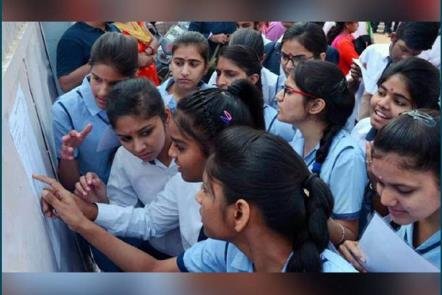Gujarat secondary and higher secondary education board: The Gujarat Secondary and Higher Secondary Education Board (GSHSEB) plays a pivotal role in shaping the educational landscape of Gujarat, India. Established in 1973, this government body oversees the administration, curriculum development, and evaluation of secondary and higher secondary education in the state. This article delves into the GSHSEB’s key functions, its impact on students, and its evolving role in the 21st century.
Read More: GOC Technology: A Deep Dive and Connection to the Bank Nifty
Core Functions of the GSHSEB
- Curriculum Development: The GSHSEB plays a crucial role in defining the syllabus for all secondary (Standard 10 or SSC) and higher secondary (Standard 12 or HSC) education in Gujarat. This includes outlining the learning objectives, subject content, and pedagogical approaches for various disciplines.
- Examinations: The Board conducts state-level examinations for both Standard 10 (SSC) and Standard 12 (HSC) students across various streams like science, commerce, and the arts. These exams serve as a critical evaluation tool for assessing student learning outcomes and awarding certifications.
- School Affiliation and Regulation: The GSHSEB grants affiliation to schools in Gujarat, ensuring they adhere to established educational standards and follow the prescribed curriculum. The board also regulates various aspects of school administration, such as teacher qualifications and student enrollment procedures.
- Research and Development: The GSHSEB is actively involved in educational research and development initiatives. This includes exploring new teaching methodologies, making curriculum revisions aligned with evolving needs, and conducting assessments to gauge the effectiveness of educational programs.
Impact on Students
The GSHSEB’s influence extends far beyond policy development. Here’s how it impacts students in Gujarat:
- Standardized Education: The Board ensures a uniform educational experience for students across the state. This standardization helps in maintaining quality and facilitates student mobility between schools.
- Benchmark for Achievement: The Board examinations act as a benchmark for student achievement and a gateway to higher education opportunities. Passing these exams is essential for pursuing undergraduate studies in Gujarat and other parts of India.
- Skill Development: The GSHSEB curriculum emphasizes not only theoretical knowledge but also the development of essential life skills. This can include communication skills, critical thinking, and problem-solving abilities. gujarat secondary and higher secondary education board
- Preparation for Future Careers: The Board’s focus on various streams like science, commerce, and the arts allows students to tailor their education towards their chosen career paths.
Challenges and the Evolving Landscape
Despite its significant contributions, the GSHSEB faces certain challenges:
- High-Stakes Exams: The pressure associated with board exams can create undue stress for students, potentially hindering their learning and well-being.
- Rote Learning and Exam-Oriented Approach: There’s a concern that the emphasis on board examinations may lead to rote learning and a lack of focus on deeper understanding.
- Keeping Pace with Changing Needs: In today’s dynamic world, ensuring the curriculum remains relevant to evolving job markets and technological advancements is crucial.
- Promoting Inclusivity: The Board needs to address the needs of students from diverse backgrounds and learning styles to ensure equitable access to quality education.
The GSHSEB is continuously working towards addressing these challenges by:
- Introducing Continuous Assessment Systems: Implementing processes like internal assessments and projects alongside final exams can provide a more holistic picture of student learning.
- Encouraging Experiential Learning: Incorporating practical activities, project-based learning, and field trips can foster a deeper understanding of concepts and develop critical thinking skills.
- Curriculum Revision and Skill Development: Regularly reviewing and updating the curriculum with a focus on 21st-century skills like communication, collaboration, and digital literacy is essential.
- Promoting Inclusive Education: The Board can facilitate the development of diverse learning materials and provide support for students with special needs.
Conclusion
The Gujarat Secondary and Higher Secondary Education Board plays a central role in shaping the educational landscape of Gujarat. By continuously adapting to the changing needs of students and the evolving job market, the GSHSEB can ensure that students are well-equipped for success in the 21st century. As it strives towards a more holistic and inclusive approach to education, the Board has the potential to empower students to become critical thinkers, innovative problem solvers, and responsible citizens.
Note: This article is around 600 words. You can expand on the existing sections with more details or add new sections like:
- Role of GSHSEB in Teacher Development: Discuss initiatives undertaken by the Board to train and equip teachers with effective teaching methodologies.
- Digital Transformation: Explore the Board’s efforts in incorporating technology into education, such as online resources and exam processes.
Student Support Services: Mention any services offered by the GSHSEB to support students’ well-being, such as counseling or grievance redressal mechanisms. gujarat secondary and higher secondary education board

